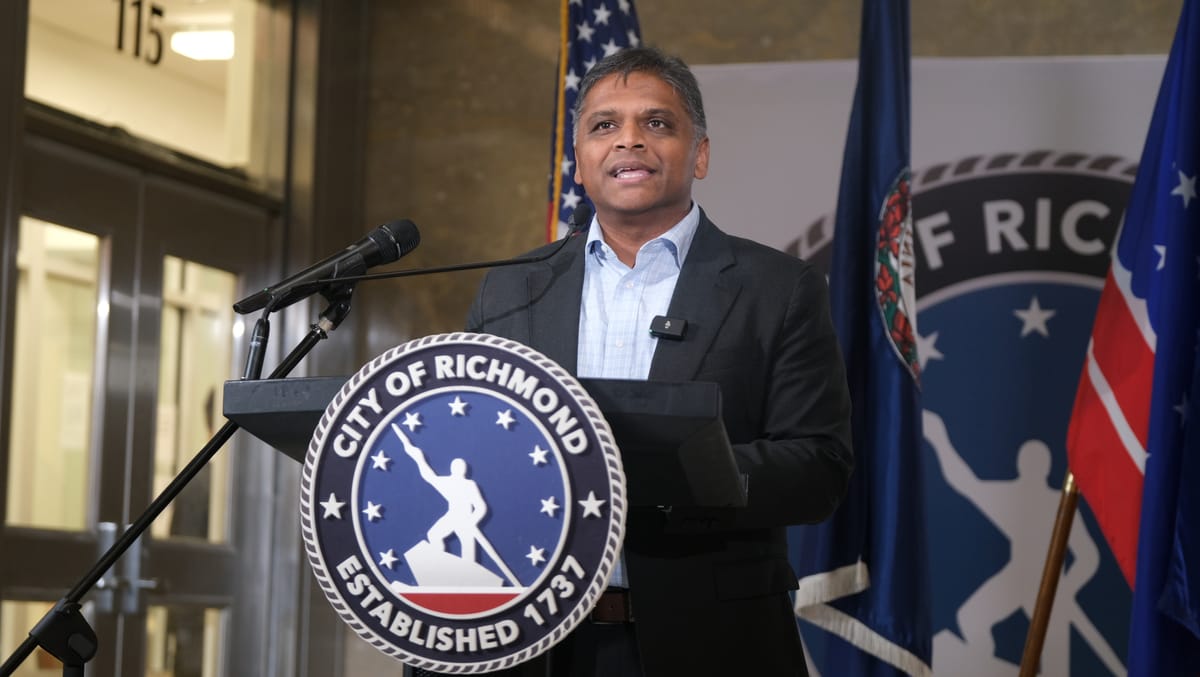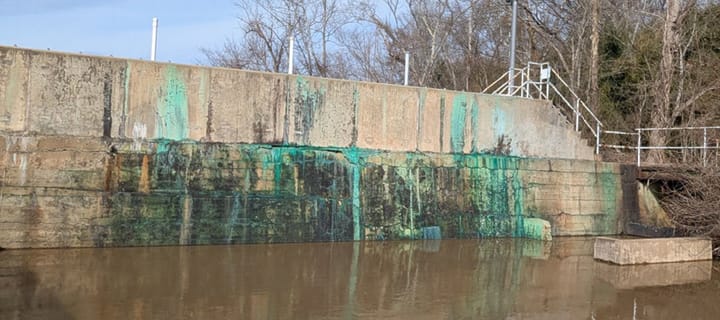Avula sets hiring limits as City Hall braces for financial hit from water crisis

Richmond Mayor Danny Avula has imposed new hiring restrictions at City Hall in an attempt to prepare the city budget for the financial impact of last month’s water plant failure.
Avula announced the move he called “temporary position control standards” at a news conference Wednesday, saying all hiring decisions will now run through the office of interim Chief Administrative Officer Sabrina Joy-Hogg in an attempt to ensure the city is only hiring for essential roles.
“We’re really going to slow down and only really focus on mission-critical positions while we make sure that our budget is in good shape as we head toward the end of the fiscal year,” the mayor said.
Not hiring for open positions is a common way for governments to save money when finances look tight. Under normal circumstances, individual departments handle their own hiring using money they’ve been budgeted for the year. Those budgets often include money going unused due to vacant positions.
A human resources memo sent to city departments Wednesday said managers who want to fill a position will now have to identify funding for the role, explain the role’s “importance” and lay out “potential operational or service-level consequences if the position is not filled.”
“This initiative aims to enhance oversight, transparency and alignment between staffing needs and financial resources,” the memo said.
The city budgets from July 1 through June 30, which means city officials will soon begin crafting a spending plan for fiscal year 2026.
The city has not offered an estimated price tag for the cost of the Jan. 6 power failure at the water plant, which led to major flooding damage to equipment and required the city to bring in emergency pumps to get treated water flowing again.
Avula said he was implementing the hiring restrictions specifically due to the expected “financial impacts of this water crisis on the overall city budget.”
“We want to make sure we are doing everything we can to steward the dollars well, to not run over budget,” the mayor said.
State budgets
Though the Richmond water crisis seemed to draw new attention to the problem of aging infrastructure, it’s unclear how much state funding Richmond can expect to get to assist with the infrastructure needs of Virginia’s capital city.
The Democratic-controlled General Assembly is currently in session, and the state Senate and House of Delegates recently released their budget proposals that will be worked out over the next few weeks. The two budget bills will then be turned into a final product to be sent to Republican Gov. Glenn Youngkin.
The House budget includes $652,113 to help Richmond “defray costs of commodities, equipment, software, and supplies used by the city in its response to the January 2025 water crisis.”
That provision isn’t in the Senate budget. But the Senate plan proposes a $25 million grant program that would allow the Virginia Department of Health to help localities “upgrade or replace existing drinking water infrastructure.” To qualify for the state money, localities would have to provide at least a 25% match with their own funds.
The state budget proposals also cast new uncertainty over funding for Richmond’s high-priority combined sewer overflow project, which is expected to cost hundreds of millions of dollars.
The Senate budget removes $50 million that had been budgeted for the Richmond project and redirects the money to other state needs. The House budget keeps that funding in place.
“I think we still have some work to do to go and meet with folks in second half of this General Assembly and help them really understand the importance of investing in infrastructure,” Avula said when asked about the General Assembly budget proposals released Sunday.
The mayor suggested the lack of major new funding in the two budget plans could be explained by the fact that state and local reviews of Richmond’s water failure haven’t been completed yet.
“The state wanted to see more information, to have the after-action reports and the investigations completed before making commitments,” he said. “I totally understand that. But we’ll continue to work with our state partners.”
311 expansion
At Wednesday’s news conference, Avula also announced the city has implemented a planned expansion of its 311 call center service, which residents can use to seek assistance for a wide variety of non-emergency municipal issues.
The new hours for 311 are 8 a.m. to 7 p.m Monday through Friday, Avula said. And, for the first time, the city will run weekend hours on Saturdays from 9 a.m. to 1 p.m.
The improved service will also feature a callback option, Avula said, so callers can avoid staying on hold for extended periods of time.
“Restoring faith in our local government by creating more access, by providing better customer service, is going to be something that we need to continue to invest in,” Avula said.






